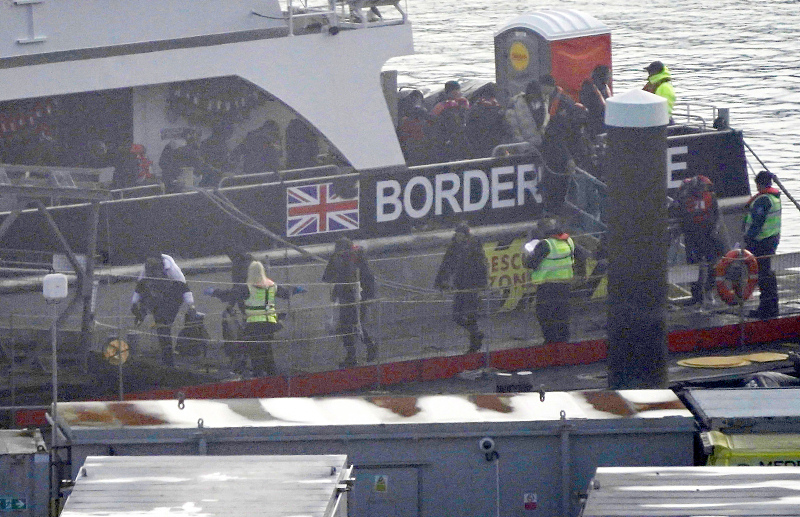Britain announced plans to slash the number of migrants arriving by legal routes on Monday, raising the minimum salary they must earn in a skilled job by a third, amid pressure on the country's Prime Minister Rishi Sunak to tackle record net migration figures.
High levels of legal migration have dominated Britain's political landscape for more than a decade and were a key factor in the 2016 vote to leave the European Union. Sunak has promised to gain more control after lawmakers in his Conservative Party criticized his record ahead of an election expected next year, with the opposition Labour Party far ahead in opinion polls.
But businesses and trade unions both attacked the measures as counterproductive and challenging for the private sector and state-run health service, both dogged by labor shortages.
Figures last month showed annual net migration to the United Kingdom hit a record of 745,000 in 2022 and has stayed at high levels since.
Home Secretary (interior minister) James Cleverly said the new measures could reduce that number by 300,000.
"Immigration is too high. Today we're taking radical action to bring it down," said Sunak, who is also trying to deport migrants who arrive illegally to Rwanda.
Cleverly said the government would raise the minimum salary threshold for foreign skilled workers to 38,700 pounds ($48,900), from its current level of 26,200 pounds, though health and social workers would be exempt.
Other measures included stopping foreign health workers bringing in family members on their visas, increasing a surcharge migrants have to pay to use the health service by 66 percent, and raising the minimum income for family visas.
The measures could spark new disputes with business owners who have struggled to hire workers in recent years given Britain's persistently tight labor market and the end of free movement from the EU since Britain's 2020 exit from the bloc.
In October, the government's independent migration adviser recommended abolishing the so-called shortage occupations list, one of the main routes for businesses to hire migrant workers in sectors where there are severe staff shortages.
Cleverly said the government would end the current system that lets employers pay migrants only 80 percent of the going rate to do jobs where there is a worker shortage, and that the list of shortage occupations would be reviewed.
"We will stop immigration undercutting the salary of British workers," Cleverly told lawmakers. "We will create a new immigration salary list with a reduced number of occupations."
(With input from Reuters)


